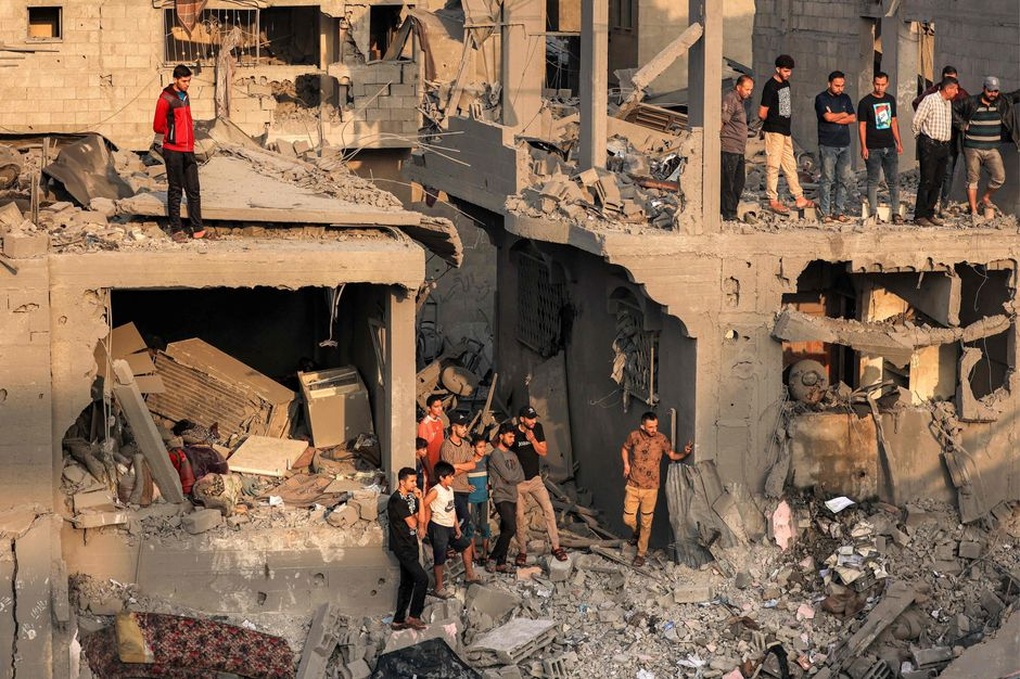
Gaza residents look at the rubble of a building hit by an Israeli airstrike (Photo: Getty).
This is exactly what the Israeli army has been telling Gazans: head south for their own safety. Ashqar has also been through wars in the past and knows how hard it can be for Gaza City.
But heavy airstrikes continued along his and his family's route. Ashqar moved again. "Nowhere felt safe," said the father of four.
In recent days, Israel has said it is stepping up attacks on "Hamas military targets in the Gaza Strip" ahead of a planned ground offensive.
A potential ground war would make Gaza even more dangerous, with few places left for residents to hide. Palestinian civilians like Ashqar are giving up hope of finding any shelter from the fighting. “There is no safe place in Gaza,” he admitted sadly. That includes areas that Israel had previously thought would be spared from attacks.
On October 13, the Israel Defense Forces dropped leaflets on Gaza and sent messages in Arabic asking more than 1 million residents in northern Gaza City and Gaza to evacuate "for your own safety."
“Those who want to save their lives, go south,” Israeli Defense Minister Yoav Gallant told reporters at the time. Some Gazans heeded the warning while others remained, amid international human rights groups’ outcry over Israel’s demands.
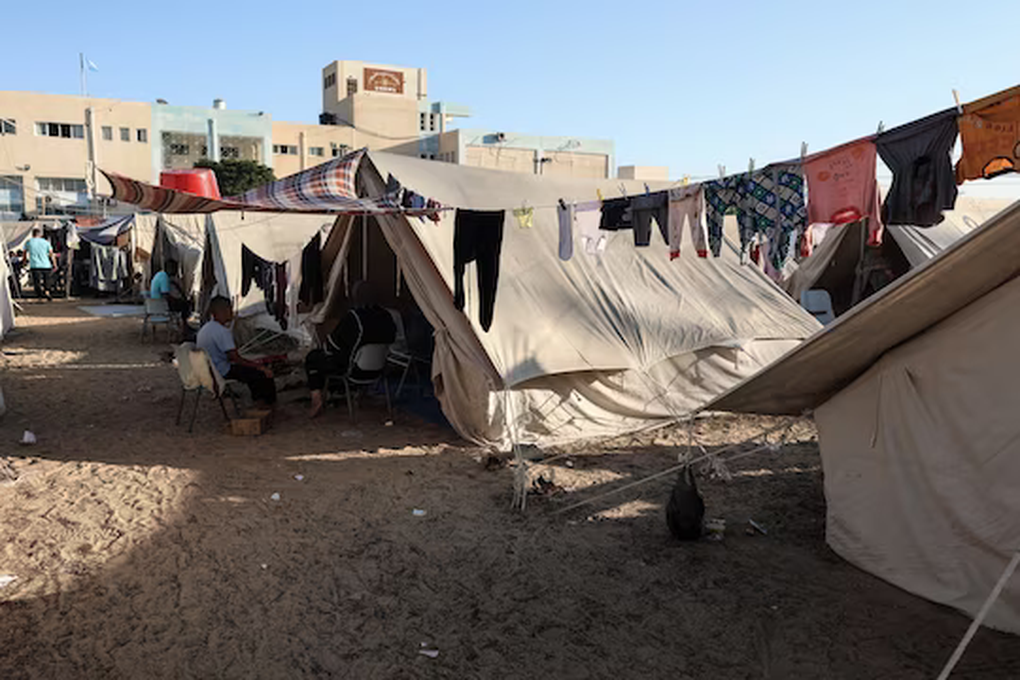
A refugee camp for Gazans run by the United Nations Relief and Works Agency in Khan Younis (Photo: Washington Post).
Gaza's Health Ministry said more than 7,000 Palestinians have been killed since the conflict began on October 7. Nearly two-thirds of the casualties from Israeli attacks this week occurred in the southern part of the enclave, the Gaza Health Ministry said on October 25. Meanwhile, the Israeli military has not reported any civilian deaths in central and southern Gaza.
A woman in Deir el-Balah, central Gaza, said she trained her ears to listen to ambulances from a nearby hospital. After a bombardment, she called contacts to exchange information and check who was alive, who was not, and who was missing. In Rafah, Bassam Naser, an aid worker, said she “heard the bombs exploding 24/7.”
He said he was lucky to have enough fuel for a trip back north or to a hospital. On October 25, an Israeli airstrike destroyed the only remaining bakery in the Maghazi refugee camp in central Gaza, killing eight people, according to the government press office in Gaza. The Israeli military did not respond to a request for comment.
Authorities in Gaza said that since October 23, the United Nations Relief and Works Agency for Palestine Refugees has donated flour to the bakery to help subsidize the cost of bread as Gazans struggle to find and buy basic necessities.
"They have no links to Hamas. They are Fatah people," said Musheir El-Farra, a human rights activist in Gaza, adding that the area had never been bombed.
"Safe zone" is no longer safe
Wael al-Dahdouh, Al Jazeera's Gaza bureau chief, lost his wife, son, daughter and grandson after the Nuseirat refugee camp, where the family had taken refuge after fleeing the north, was hit by an Israeli airstrike on October 25.
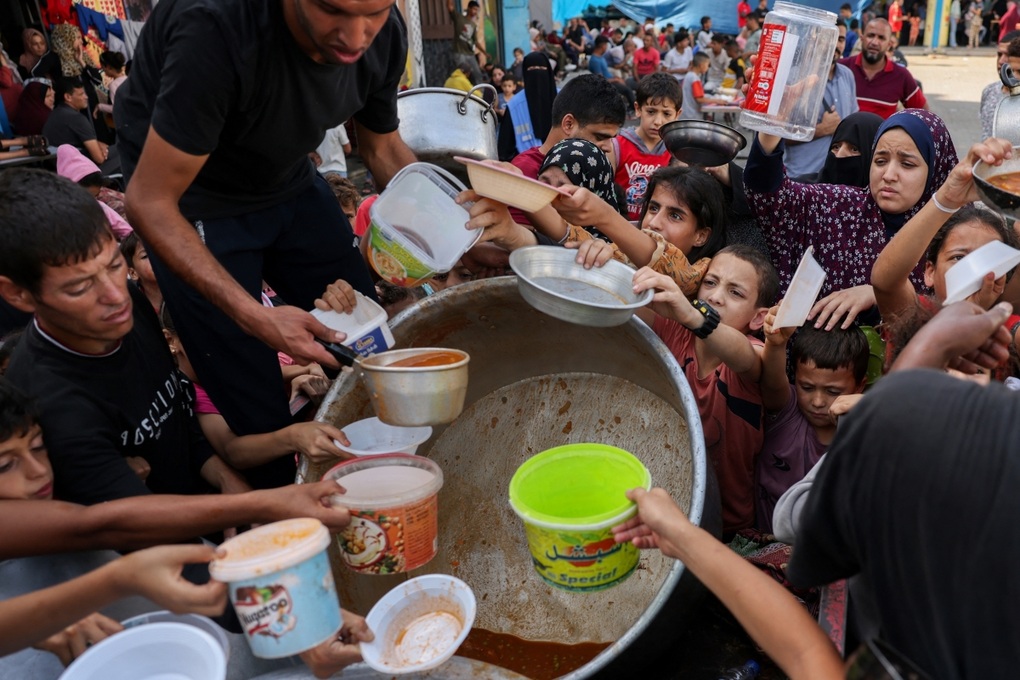
Palestinians receive food aid at a United Nations-run school distribution point in Rafah, southern Gaza, on October 23 (Photo: AP).
Al Jazeera footage showed Mr al-Dahdouh breaking down in tears as he viewed the bodies of his family members at the al-Aqsa hospital morgue in Deir al-Balah. "What happened is very clear. These were attacks targeting children, women and civilians. Sadly, this is the safe zone that the Israeli army mentioned when they asked people to evacuate," Mr al-Dahdouh said from the hospital.
At the start of the fighting, Ashqar also fled his home in Gaza City’s Tel al-Hawa neighborhood to his sister’s house. He thought it was a relatively safe area. It wasn’t. A few days later, he moved his family south and tried living in the Khan Younis neighborhood in an apartment built by Qatar after the 2014 war.
But journalist Ashqar said they evacuated after three days when Israel attacked a nearby area. Their third move became his wife's last. The Ashqars moved into a building owned by his family in the Nuseirat refugee camp. Twelve families crammed into the building.
On October 21, his wife, a Dutch citizen, ventured to the nearby Nuseirat market, which had been hit by an earlier airstrike. She bought milk, eggs and vegetables—all luxuries in wartime Gaza. That evening, around 7:30 p.m., the ground shook suddenly, and Ashqar said his wife and at least five others were killed.
Ashqar said the milk, eggs and vegetables his wife had just bought were still intact. He found them in the kitchen covered in dust and ash.
Source


![[Photo] Party and State leaders attend the special art program "You are Ho Chi Minh"](https://vphoto.vietnam.vn/thumb/1200x675/vietnam/resource/IMAGE/2025/5/18/6895913f94fd4c51aa4564ab14c3f250)



![[Photo] Ready for the top competitions of Vietnamese table tennis](https://vphoto.vietnam.vn/thumb/1200x675/vietnam/resource/IMAGE/2025/5/18/9c547c497c5a4ade8f98c8e7d44f5a41)
![[Photo] Many young people patiently lined up under the hot sun to receive a special supplement from Nhan Dan Newspaper.](https://vphoto.vietnam.vn/thumb/1200x675/vietnam/resource/IMAGE/2025/5/18/6f19d322f9364f0ebb6fbfe9377842d3)
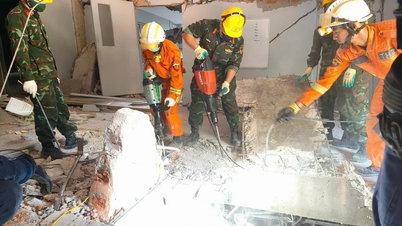



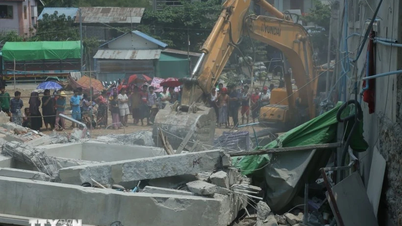
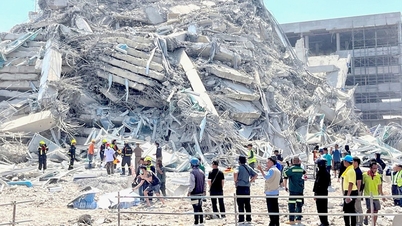

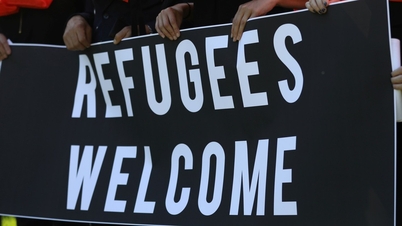














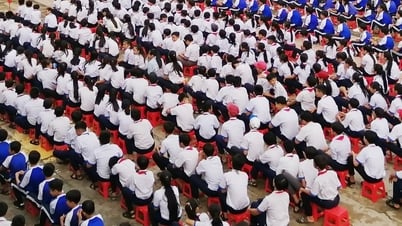
























































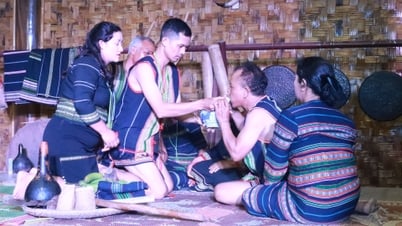

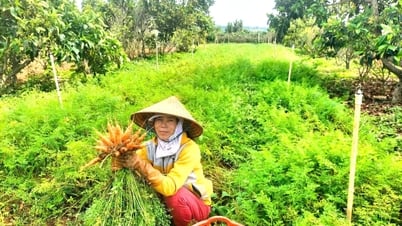
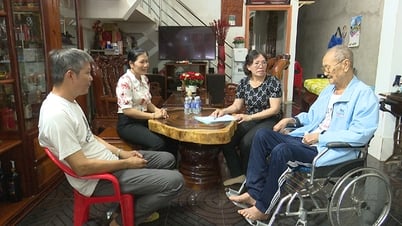









Comment (0)